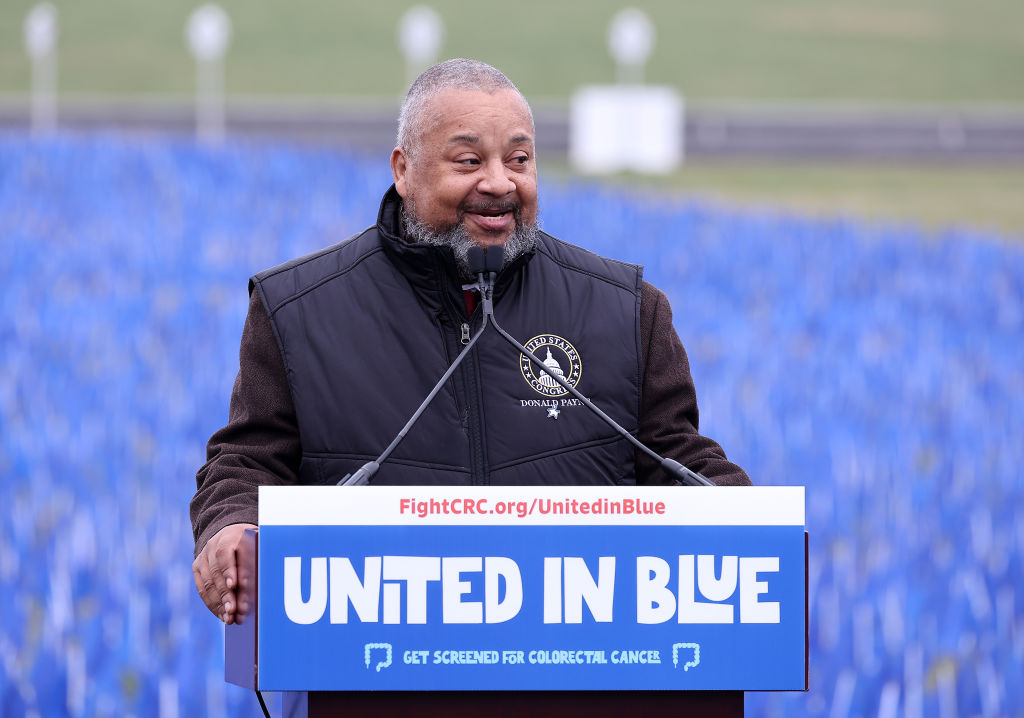This year's race for mayor will go down as the most expensive campaign in District history. With all of this money flowing in, it can be hard to keep track of where the cash is coming from.
D.C. campaign finance laws are modeled after federal laws, with one big difference: corporations and unions are allowed to directly contribute to local campaigns. And, some companies may have found a way to give more than others.
Some of the names sound generic: Acme Atlantic Leasing Company LLC or Gotham Investors LLC. Others sound a little more specific: Round Hill Investors LLC or FGV Investors LLC.
There are 11 companies in all. They all gave the $2,000 maximum to Mayor Adrian Fenty’s campaign and all are listed at the same address: the 8th floor at 2000 Tower Oaks Boulevard in Rockville, Md.
That turns out to be the headquarters for Lerner Enterprises, the area's largest real estate developer. Tax records show the resident agent for most of them is a vice president at the company.
But Lerner Enterprises is hardly alone. A review of campaign records for the mayoral candidates shows the practice of corporations with links to multiple limited liability corporations (LLCs), associations, or other companies donating money is not uncommon, particularly among real estate developers.
"There is definitely an inherent advantage to real estate holding companies in terms of being able to help the candidates they want to support,” says Terry Lynch, a long-time D.C. activist.
Politics
Political news from the U.S. Capitol, White House and around Washington, D.C., Maryland and Virginia
As Lynch explains, real estate companies often own many properties. To limit their liability, if a development goes south, these companies often create individual LLCs for each property. But there's an unintended consequence when the campaign season rolls around.
"You own 20 different properties, those properties are all separately incorporated, then frankly you are able to, what they call bundle, you know each of those properties are able to donate,” says Lynch.
D.C. campaign law says corporations are not allowed to use subsidiaries or companies under its control to skirt contribution limits, but at the same time, it says it's perfectly legal for corporations and their owners to make multiple contributions.
It all depends on who actually owns the LLCs, and those representing the real estate industry are quick to point out, the LLCs are different.
"It's useful to remember that none of this is illegal," says Rod Woodson, attorney and chairman of the legislative committee of D.C. Development.
"The campaign finance law in the district, and many other locations and jurisdictions recognizes that individuals, corporations, partnerships, and LLCs, and the list is long, they are all considered persons for the purpose of campaign finance, so there is nothing nefarious about any of this," he says.
Woodson says while these LLCs may list the same manager or address, he says it's likely these companies are composed of different investors and under the law must be treated as separate, individual entities.
But Lynch, the activist, and others say the ability of one corporation to be connected with a dozen or more LLCs donating money, may not violate the letter of the law, but it flies in the face of the intent of the law, which is designed to cap contribution limits.
Not so, says Woodson.
"Access in D.C. government and to D.C. government officials is not a function of giving money to them," says Woodson.
D.C. Council Member Mary Cheh agrees with Woodson, to a point.
"Honestly I don't pay that much attention to where the money comes from," says Cheh.
But at the same time, she sees how this issue creates, what she calls, mischief and says she will push for her committee, which oversees campaign finance, to tackle it.
"Say if you have sufficient disclosure that all of this money all came from a essentially a single company through all of its separate little companies, maybe that's enough, I'm not sure," she says.
LLCs do not list, on campaign finance reports, the identity of the donors, making it very hard to "follow the money."
And the city's Office of Campaign Finance is small, with limited resources, and usually looks at cases after someone raises a question.
When asked about all of the companies stemming from the Lerner Enterprises address, an OCF spokesman said the case would raise a red flag for the audit division, but the audit supervisor was not in that day, and couldn't address the issue.
Repeated calls to Lerner Enterprises failed to produce a response in time for broadcast.
Listen to the complete story at wamu.org
Copyright 2010 WAMU 88.5 - American University Radio. All Rights Reserved.



